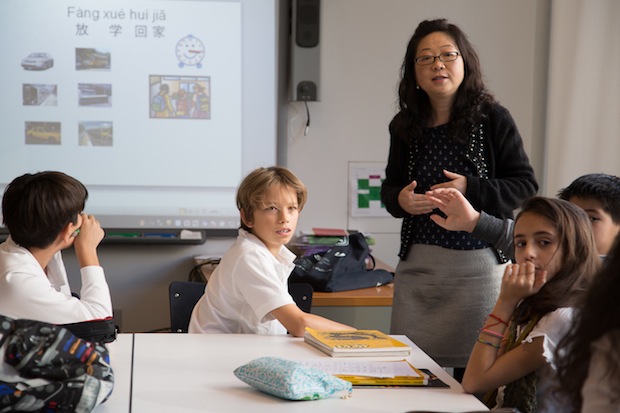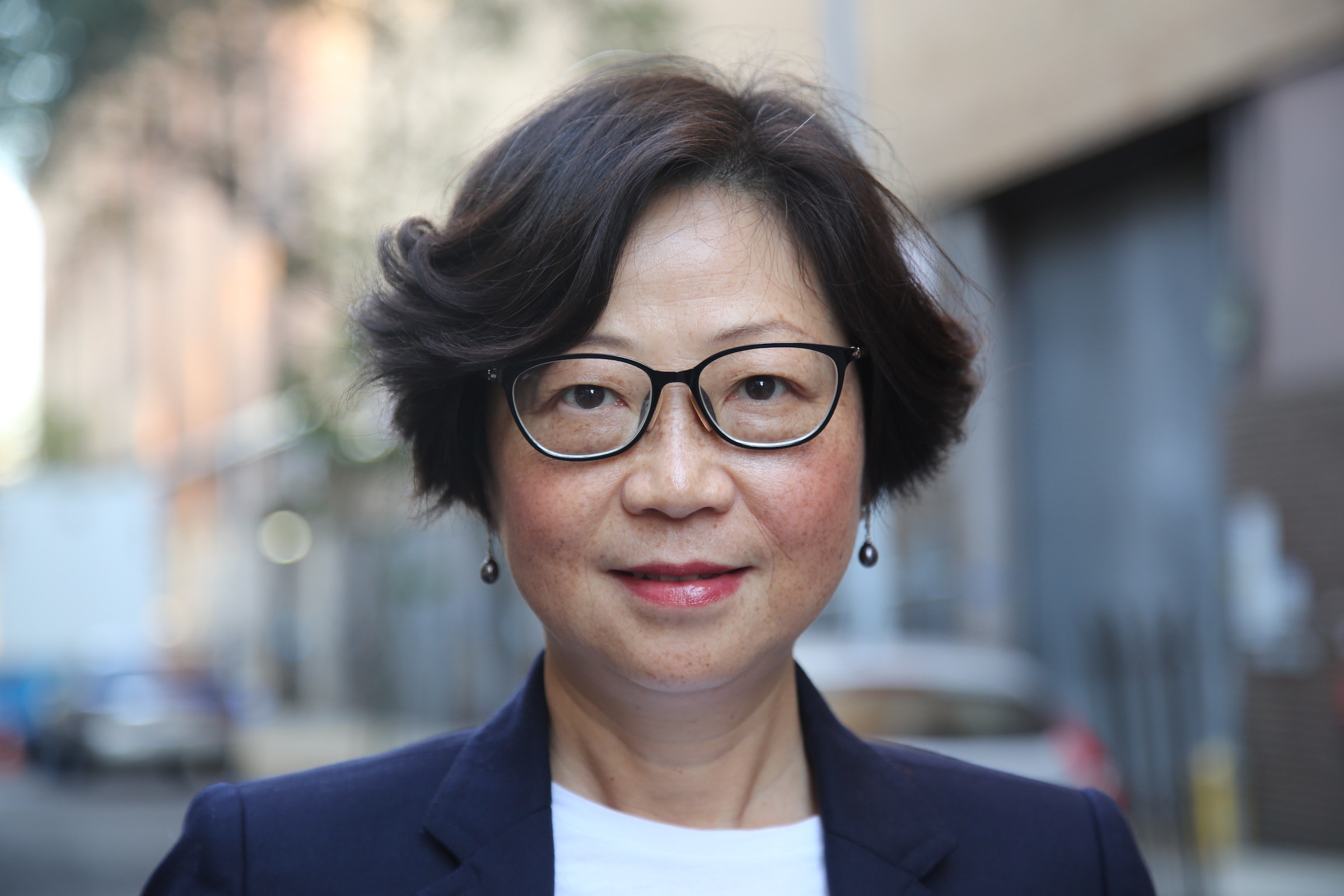A 7th-grade Mandarin class on December 14th 2012.
I was excited to read Sean’s post “I do I understand”. I was impressed by Sean’s depth of knowledge of Chinese language and Chinese culture. I think it is thoughtful and inspiring. Learning Chinese does pose a particular challenge for our students.
“In an alphabetic language, the reader looks at a word on the page, immediately knows its sound, and can connect it to a meaning directly through the brain’s oral lexicon. When a learner looks at a Chinese character, the brain must connect it separately to its sound and to its meaning.” (“Teaching Method Holds Key in Chinese Learning–China Daily”).
Therefore, teaching Chinese as a foreign language in the U.S. is obviously a daunting task for us Chinese teachers. Studying and knowing the Chinese characters is like “challenging a deeply fascinating puzzle,” according to the Asia Society. While teaching, I often wonder how to make a good sense of seemingly random sticks into rich, vibrant and insightful pictographs , for instance, while teaching the character “休” xiū” meaning “to rest”, it is more helpful for a teacher to teach “the radical on the left, 亻which means “a person”, and the part on the right, 木, means wood or tree, so the made up “story” could be “a person is leaning against a tree is to have a rest.”
 The pictograph of the character “ 休”meaning “to rest”
The pictograph of the character “ 休”meaning “to rest”
But the ultimate goal of learning a foreign language is to communicate, that is, not just the form and meaning but how to use the target language in an appropriate way.
All this requires a Chinese teacher not only to have competent English/French language skills, a good knowledge of second language acquisition, the capability of comparing English/ French language with the Chinese language but alsoa strong cross-cultural awareness, knowledge and competency. Apart from all these, we must have a strong empathy for our students who are going through the same difficulties and obstacles we experienced while we were learning English or French.
We should acknowledge that their Chinese learning experience itself demonstrates many of their own personal traits: willingness to dedicate themselves to a difficult task, perseverance and endurance in spite of seemingly overwhelming obstacles. Only when we understand these can we appreciate all the painstaking efforts they have put into learning this challenging and enriching language.
Responses from 5e 1, 2, 3 Chinese Accelerated Class
Q: Mandarin is a language that is different to learn than German or Italian. Do you agree and why?
A:
- Very different because there are no letters but characters only
- There are different tones for each word, they might be written the same way but not pronounced the same and don’t mean the same thing
Q: Is Chinese hard to learn?
A: 11 people answered that Chinese is hard.
8 people answered that Chinese is easy.
Q: Why did we choose to learn Mandarin?
A:
- It’s a challenge, more jobs going to China
- More opportunities in the future
- More people are learning Chinese
- Interesting language, culture is interesting
- Didn’t want to let go since Primary
- Different language
Q: What fascinates you the most in Chinese culture?
A:
- The contrast between American and Chinese culture but also the similarities
- Interesting and old monuments, history
- Technology and the huge amount of products that are made there
- Interesting culture
Q: What is the best way to learn a language?
A:
- Practice makes perfect
- Having a teacher like Ms. Wei
- Devoting yourself
- Practicing in real life situations
- Take a trip to China or visit China Town.
About the Author :
Susan Wei joined the Lycée faculty and started the Chinese program in 2006. She earned a master’s in teaching from the School for International Training Graduate Institute in Brattleboro, Vermont and a bachelor’s in English from Anhui University in China. Before moving to the US, she worked as an associate professor at China’s Shantou University. Prior to the Lycée, Susan worked for a student exchange organization in D.C and taught Chinese at Hope Chinese School in Maryland. She was appointed as AP reader by ETS and College Board in 2013. She has had one book (co-author) published in America and in China, she translated the “James Bond 007” series. When not teaching, Susan enjoys cooking, yoga, and spending time with her family.




